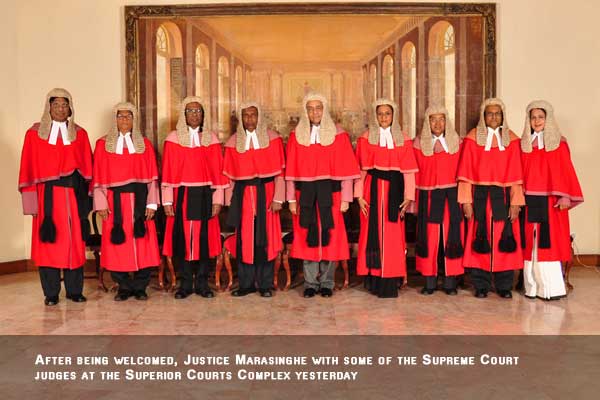Reply To:
Name - Reply Comment
Last Updated : 2024-04-20 00:00:00

.jpg) " The judges in the apex court should not consider themselves prisoners in an ivory tower. They should periodically leave such an enclosure and commence a dialogue with the executive arm of the government. The Latimer House guidelines to which I have previously referred encourages the judiciary and the government to have periodical dialogues without compromising judicial independence "
" The judges in the apex court should not consider themselves prisoners in an ivory tower. They should periodically leave such an enclosure and commence a dialogue with the executive arm of the government. The Latimer House guidelines to which I have previously referred encourages the judiciary and the government to have periodical dialogues without compromising judicial independence "Kiwi Thursday, 16 May 2013 12:00 PM
Wasn't it said that Parliament is supreme during the CJ fiasco, so then will the Executive which is a part of the supreme Parliament respect the judiciary?????

Add comment
Comments will be edited (grammar, spelling and slang) and authorized at the discretion of Daily Mirror online. The website also has the right not to publish selected comments.
Reply To:
Name - Reply Comment
On March 26, a couple arriving from Thailand was arrested with 88 live animal
According to villagers from Naula-Moragolla out of 105 families 80 can afford
Is the situation in Sri Lanka so grim that locals harbour hope that they coul
A recent post on social media revealed that three purple-faced langurs near t